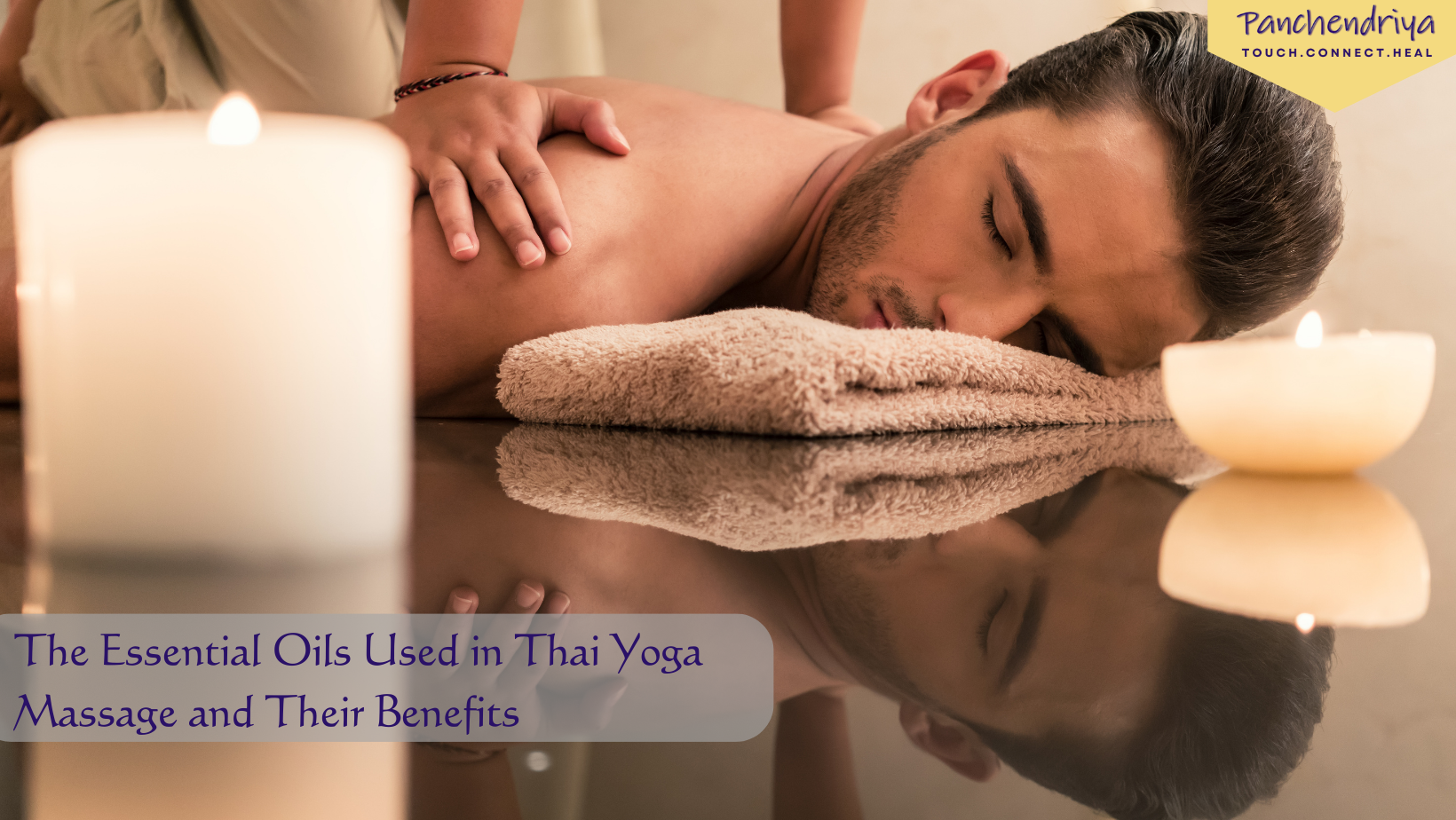Thai yoga massage, an ancient practice combining acupressure, yoga postures, and deep stretching, is renowned for its ability to promote relaxation, improve flexibility, and reduce pain. But did you know incorporating essential oils during your Thai yoga massage can further elevate the experience?
Essential oils, concentrated plant extracts, boast a variety of therapeutic properties. When inhaled or absorbed through the skin during a massage, these potent oils can enhance the benefits of Thai yoga massage by targeting specific concerns.
In this blog, we’ll delve into the world of essential oils used in Thai yoga massage. We’ll explore some of the most popular oils, their unique properties, and the specific benefits they offer.
Popular Essential Oils in Thai Yoga Massage
- Lemongrass: This invigorating oil, with its citrusy scent, is a common choice in Thai massage. Lemongrass has been shown to possess anti-inflammatory and analgesic (pain-relieving) properties, making it ideal for soothing sore muscles and promoting circulation.
- Lavender: Known for its calming and relaxing properties, lavender oil is a popular choice for those seeking stress relief and improved sleep. Studies suggest lavender can lower blood pressure and heart rate, further promoting relaxation during your massage.
- Ylang-ylang: This exotic flower oil boasts a sweet, floral aroma known to ease anxiety and promote emotional well-being. Ylang-ylang can also help regulate blood pressure and improve circulation, contributing to a more enjoyable massage experience.
- Clary Sage: This oil, extracted from the clary sage plant, is often used to address headaches and muscle tension. Clary sage has balancing and calming properties, making it a valuable tool for managing stress and promoting relaxation during your Thai yoga massage.
- Ginger: Renowned for its warming and stimulating properties, ginger essential oil can improve circulation and ease muscle soreness. Studies suggest ginger may also help with nausea and inflammation, making it a beneficial choice for those seeking pain relief.
- Eucalyptus: This invigorating oil, with its refreshing scent, is known to clear congestion and promote respiratory health. Eucalyptus oil can also help ease muscle aches and pains, making it a valuable addition to a Thai yoga massage focused on improving flexibility and mobility.
- Coconut Oil: While not technically an essential oil (it’s a carrier oil), coconut oil is a popular base for essential oil blends used in Thai massage. Coconut oil is a natural moisturizer that glides smoothly on the skin, facilitating the massage therapist’s movements and enhancing the absorption of essential oils.
Choosing the Right Essential Oil for You
With so many essential oils available, selecting the right one for your needs can feel overwhelming. Here are some tips to guide you:
- Consider your goals: Do you seek relaxation, pain relief, or improved circulation? Choose an oil with properties that target your specific needs.
- Consult with your massage therapist: They can recommend suitable oils based on your individual health and preferences.
- Be mindful of allergies: Some essential oils can irritate sensitive skin. If you have allergies, discuss them with your massage therapist and choose a hypoallergenic oil.
- Start with a low dilution: When using essential oils for the first time, it’s advisable to start with a low dilution to assess your tolerance.
Safety Considerations When Using Essential Oils
Essential oils are potent and should be used with caution. Here are some safety tips to keep in mind:
- Never ingest essential oils. They are for topical use only.
- Perform a patch test before applying an essential oil directly to your skin. Dilute a drop of the oil with a carrier oil like coconut oil and apply it to a small area of your inner arm. Wait 24 hours to check for any irritation.
- Avoid contact with eyes and mucous membranes. If essential oil gets into your eyes, flush them with clean water for several minutes.
- Pregnant and breastfeeding women, as well as children, should consult with a healthcare professional before using essential oils.
Conclusion
By incorporating essential oils into your Thai yoga massage experience, you can unlock a world of additional benefits.



